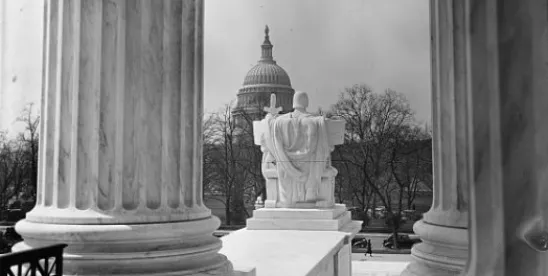Earlier this month, the U.S. Supreme Court granted certiorari to China Agritech, Inc., a fertilizer manufacturer, from the Ninth Circuit’s decision in Resh v. China Agritech, Inc., 857 F.3d 994 (9th Cir. 2017). In reviewing Resh, the Court will consider whether its American Pipe and Construction Co. v. Utah, 414 U.S. 538 (1974) ruling tolls statutes of limitation to allow previously absent class members to bring a subsequent class action outside of the applicable limitations period. In other words, whether its American Pipe ruling applies only to subsequent individual claims or if it extends more broadly to successive class actions.
Background
In American Pipe, the Supreme Court held that the filing of a class action suit tolls the running of the statute of limitations for all purported members of the class who make timely motions to intervene after the court has found the suit inappropriate for class action status. However, there is currently a circuit split regarding the interpretation of American Pipe as it relates to tolling for subsequent putative class actions. As stated in its Petition, China Agritech argues that the First, Second, Third, Fifth, Eighth and Eleventh Circuits have found the American Pipe decision to allow for tolling for individual actions only—and not serial class actions. Three other courts of appeal—including the Ninth Circuit in the decision at issue—have rejected this notion and instead interpret American Pipe to mean that the limitations period is tolled not only as to individual claims but also as to future class action claims.
Ninth Circuit Opinion
Plaintiffs in Resh brought a putative class action alleging violations of the Securities Exchange Act of 1934. Plaintiffs were also previously unnamed plaintiffs in two earlier putative class actions against some of the same defendants, and class action certification was denied in both cases. In December 2014, a California district court dismissed Resh’s proposed class action and concluded that the statute of limitations was tolled for the individual claims of the named plaintiffs in Resh but was not tolled for plaintiffs’ would-be class action. In May 2015, a Ninth Circuit panel reversed that decision, holding that permitting future class action named plaintiffs to avail themselves of the American Pipe tolling would “advance the policy objectives that led the Supreme Court to permit tolling in the first place.” The Ninth Circuit also stated that this rule promotes “economy of litigation by reducing incentives for filing duplicative, protective class actions because ‘[a] putative class member who fears that class certification may be denied would have every incentive to file a separate action prior to the expiration of his own period of limitations.’”
Before the Supreme Court, China Agritech argues that the Ninth Circuit erred in extending American Pipe to class actions, the decision cannot be reconciled with the principles animating American Pipe tolling, and affirming this decision would lead to significant adverse policy consequences.




 />i
/>i

